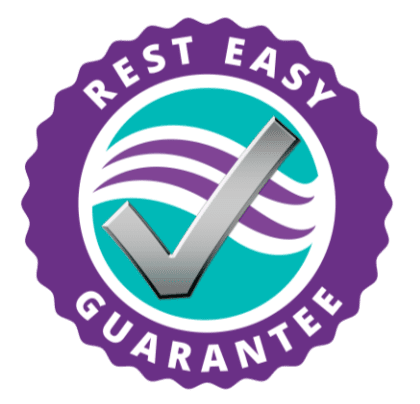Call 843-305-5728 to schedule service or installation
Blog | Financing | Now Hiring | Call 843-305-5728
How Can You Manage Your Home’s Humidity?
Indoor humidity is a drag. It makes relaxing extremely difficult—after all, you are sweating inside your home! It can affect your health, triggering asthma attacks and flaring allergies. It tends to put everyone in a sluggish mood—even the goldfish. Let’s zap that excess moisture right out of the room, and look at ways to manage your South Carolina home’s relative indoor humidity.
At Coastal Air Plus , we always strive to find ways to improve your comfort and energy savings. We believe you should control your comfort, and it starts with your indoor air quality (IAQ) and relative indoor humidity.
How to Manage Your Home’s Humidity
First of all let us answer the main question: what humidity level do I want in my Conway home?
The answer is going to be different for every person! It’s like the temperature—some like it hot and others like it cold. Typically, you want your humidity between 30 and 50 percent for ideal comfort levels.
According to the US Environmental Protection Agency (EPA), reducing indoor humidity levels to below 60 percent helps control the growth of mold and reduces potential heath problems associated with mold exposures such as allergic reactions, asthma and other respiratory issues. A relatively inexpensive instrument called a hygrometer can measure the indoor relative humidity at your home or business.
Dehumidification
Your air conditioner (AC) removes humidity from the air, but this is not always sufficient to maintain ideal humidity levels in the home. The best recommendation for managing the excessive humidity levels in your home is to install a whole-house dehumidifier. This device works with your heating, ventilation, and air conditioning (HVAC) equipment to remove moisture from the air before it circulates through your Conway home.
A dehumidifier helps to keep your home comfortable all summer long. It operates similarly to your AC unit in that moisture is collected by a refrigeration coil within the device. This excessive moisture is then drained and the conditioned air is distributed throughout the home.
Signs that you have too much humidity at home:
- Moist or sticky air
- Damp or musty smell
- Condensation on your windows
- Wet walls
- Bacterial growth (in either the home, attic, or crawlspace)
Too much humidity in the air can cause:
- Poor indoor air quality that could lead to illness
- Mold, mildew, and bacteria growth
- Worse or more frequent symptoms for asthma or allergy sufferers
- Damage to your home from extensive exposure to moisture
Humidification
There are a few different options for whole-house humidifier systems, but they all essentially add moisture to the air in your central heating system to increase humidity levels to the desired range.
A properly designed and installed humidification system can make a significant difference in a home, but only if designed and installed properly. A poorly installed system can cause a world of headaches for the unsuspecting homeowner. Improper humidification and design can lead to mold or bacterial growth throughout the home or attic. Equipment failure due to poor installation can lead to leaks and damage ceilings, wall, insulation, framing, or even roofing.
Signs that you do not have enough humidity at home:
- Asthma and allergy symptoms worsen
- Dry skin and chapped lips
- Wooden floors or furniture which dries out and cracks
- Your home never feels as warm as the thermostat indicates
A lack of humidity can cause:
- Sickness to spread more easily
- Home damage from dry/cracked wood
- Increase in utility bills
Fix Your Ducts!
Before considering a whole-house system to add or remove humidity from your home, first ensure your home and ductwork is properly sealed and insulated. No system can keep a home comfortable if these things are not up to standard. Schedule an appointment with Coastal Air Plus to have one of our professionals inspect and seal your ductwork so we can determine the next step to maintaining ideal humidity levels in your home.
Call Your Air Quality Experts Today!
In both humidification and dehumidification, there are a wide range of products and price points to consider. At Coastal Air Plus, our professionals will walk you through the selection and design process. We take into account the many variables involved in creating the perfect system so you are comfortable through all of the seasons in your Conway, SC, home. Call 843.238.3838 or request service online today to learn more about tackling humidity.
The post How Can You Manage Your Home’s Humidity? appeared first on Coastal Air plus.
Don’t let an air conditioning or plumbing problem interrupt your day and disrupt your comfort. Contact Coastal Air Plus today for prompt, professional service at 843-305-5728.
Coastal Air Plus is South Carolina’s preferred choice for heating, cooling, and plumbing service, maintenance, and installation.
We've created lasting relationships with home and business owners in the Grand Strand since 1947.
SC Mechanical Contractor #M111694
Residential Services
Heating, Cooling, Plumbing Specials
Air Conditioning Special
Plumbing Special
Special Financing Offer
Coastal Air Plus – Conway
843-305-5728
2159 SC-544, Unit C
Conway, SC 29526
Coastal Air Plus – Charleston
843-305-5728
1777 Harmon Street
Charleston, SC 29405
Coastal Air Plus – Myrtle Beach
843-305-5728
1347 Enterprise Avenue
Myrtle Beach, SC 29577
Coastal Air Plus | Privacy | Accessibility | Site Map




